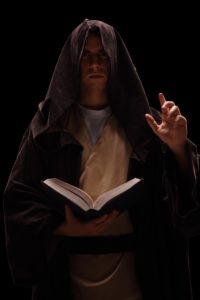
If you’ve watched films such as “Eyes Wide Shut” or “Get Out,” you’ve seen some fictional depictions of cults. While these have been dramatized to scare the viewer or impart a lesson, many observe that their nonfictional counterparts blend religious ideologies with an authoritarian focus and a marked cultural schism between its membership and perceived outsiders. However, experts find that the exact nature of a cult is hard to pin down.
What Is a Cult?
The International Cult Studies Association admits that pinning down a specific list of features that define a cult is tough. In its current literature, it focuses on and educates about unhealthy interpersonal dynamics within groups. ICSA’s online library includes an article by Dr. Russell H. Bradshaw revealing that it once described a cult as “an ideological organization held together by charismatic relations and demanding total commitment.” This seems to agree with assessments by sociologist Max Weber, who observed that leadership by a charismatic individual is a frequent feature of cults.
However, others have stepped in and tried to apply their own ideological framework. Evangelical minister Walter Martin attempted to define Christian cults as groups that relied on the interpretations of a single individual or that denied significant tenets of mainstream Christianity such as the existence of the Trinity. Specifically, he focused his ire on organizations such as the Church of Jesus Christ of Latter-day Saints, the Jehovah’s Witnesses and Unitarian Universalism.
Destructive Cults Come With All Kinds of Ideologies
Closed-in groups that take complete control of and harm their members have a wide range of belief systems, but many of these details aren’t apparent until they make the news. In a September 2017 Rolling Stone piece, writer Elizabeth Yuko lists examples of those that adopted warped interpretations of Christian theology, such as the Peoples Temple headed by Jim Jones and the Branch Davidians formed by David Koresh. More recently, a worship group affiliated with the International House of Prayer gained national attention when one of its members, Bethany Deaton, was found dead. Ex-member Boze Harrington described shocking levels of control and abuse by its leader in a piece he wrote for The Atlantic in 2014.
Other cults sometimes borrow from New Age philosophies inspired by Eastern belief systems, mysticism and fascinations with extraterrestrial beings. Heaven’s Gate is one such example, traveling for two decades as mendicants and convincing those interested in joining to give up their worldly possessions. Its philosophies included teachings that humans were supposed to ascend to a “Next Level” in which they do not eat, die or engage in intercourse and that God was a highly developed extraterrestrial. After founder Marshall Applewhite persuaded followers that they would be rescued from a doomed Earth by a hidden spaceship near the Hale-Bopp comet, its entire membership committed suicide in 1997.
Even Today, There Are Few Clear Answers
Both individual scholars and organizations still grapple with the task of defining and describing the nature of cults. In the 1980s, an American Psychology Association task force attempted to investigate “deceptive and indirect methods of persuasion and control” in these groups. Nevertheless, the organization’s own ethics board rejected the task force’s final report, claiming that it lacked scientific rigor and relied on sensationalist accounts. Meanwhile, sociologist Amy Ryan argues that any definition should differentiate between harmless groups and dangerous organizations. Others warn that a careful balance should be maintained between freedom of religion and protecting individuals from abuse in groups with unhealthy interpersonal dynamics.
Unfortunately, real-life examples often aren’t available for further assessment until after tragedies such as the Heaven’s Gate incident or the death of Bethany Deaton. The need to respect personal religious liberties while saving people from harm makes the issue incredibly complex and difficult. Yet despite these realities, the study of cults continues to fascinate many today.

